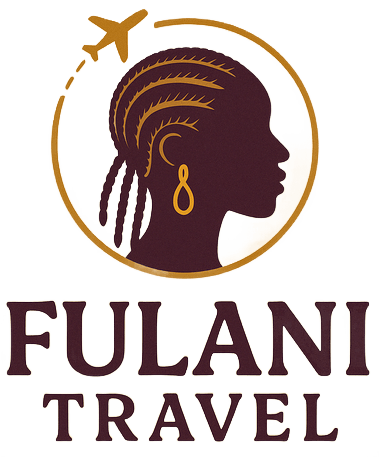Travel Requirements for Nigeria: Health Guidelines and Customs Rules
Planning a trip to Nigeria? Ensure smooth entry by understanding key requirements. You’ll need a passport valid for at least six months beyond your arrival, along with a visa (unless you have a Nigerian residence permit). Proof of Yellow Fever and Polio vaccinations is mandatory. Learn about visa application procedures, health guidelines, and customs regulations to prepare for a safe and enjoyable journey. Discover everything you need to know for a hassle-free arrival in Nigeria!
Important information

- A valid visa is required for entry into Nigeria, unless you hold a Nigerian residence permit. Apply through a Nigerian embassy or consulate, which typically takes 7-10 business days.
- Your passport must be valid for at least six months beyond your planned arrival date.
- Proof of Yellow Fever and Polio vaccinations is mandatory. Other recommended vaccinations include Typhoid, Hepatitis A & B, Cholera, and Malaria.
- Complete a Health Declaration Form before arrival. Be prepared for health screenings at the airport.
- Cash exceeding $10,000 must be declared. Firearms and narcotics are prohibited. Restrictions apply to certain foods, animals, and plants.
Entry Requirements for Nigeria
Planning a trip to Nigeria? Here’s what you need to know:
- Passport Validity: ensure your passport is valid for at least six months beyond your intended arrival date.
- Visa Requirements: obtain a visa from a Nigerian embassy or consulate, unless you hold a Nigerian residence permit.
- Vaccination Requirements: proof of Yellow Fever and Polio vaccinations is mandatory for entry.
Passport Validity and Visa Necessity
For your trip to Nigeria, ensure your passport remains valid for six months after your return. A valid visa is also required for entry, unless you’re a Nigerian citizen with a valid residence permit.
What You Need to Know About Nigerian Visas
Traveling to Nigeria requires a visa, which you can obtain from a Nigerian embassy or consulate. Before your trip, gather the following: a completed application form, a passport photo, an invitation letter or accommodation proof, verification of sufficient funds, and a return ticket. Visa fees typically range from $100 to $200. Some business travelers may be eligible for a visa upon arrival. A valid Nigerian residence permit waives the visa requirement.
Understanding Visa Application Process
Applying for a Nigerian visa generally takes 7 to 10 business days. To apply, you will need the following: a valid passport, a completed application form, and a recent passport photo. You must also provide proof of accommodation, such as a hotel reservation or an invitation letter. Additionally, you need to show you have sufficient funds for your trip and provide a return ticket. A complete and accurate application will help expedite the process.
Visa on Arrival: What to Expect
To get a Visa on Arrival in Nigeria, you must first obtain pre-approval from a Nigerian embassy or consulate. Failure to do so will result in denied entry. Thorough preparation of all required documents is essential.
Health Guidelines for Travelers to Nigeria
Planning a trip to Nigeria? Ensure you’re protected with the necessary vaccinations. Yellow fever and polio vaccinations are mandatory – bring your certificates.
Recommended Vaccinations
- Routine vaccinations are recommended for all travelers.
- For added safety, consider vaccines for typhoid, hepatitis A and B, cholera, and malaria.
Medication Guidelines
- Pack any prescription medications in their original containers and confirm they’re permitted in Nigeria.
- Consult your doctor about necessary medications and preventative measures, such as mosquito repellent.
Complete the Nigeria Health Declaration Form
This applies to all travelers, even those just passing through. The form gathers your health information and travel history.
Download the Form
Remember to download the form after submitting it.
Prepare for Health Checks
Be prepared for potential thermal screenings and additional health checks upon arrival.
Health Precautions in Nigeria
- Drink bottled water.
- Avoid raw or undercooked food.
- Protect yourself from mosquito bites to minimize the risk of malaria and other mosquito-borne diseases.
Travel Insurance
Travel insurance is highly recommended. Ensure it covers medical treatment and evacuation, as Nigerian medical facilities may have limitations and often require upfront payment.
Mandatory Vaccinations: Yellow Fever and Polio
Nigeria requires proof of yellow fever vaccination for entry, especially if you’ve been in a yellow fever risk zone within the last six days. A yellow fever certificate is mandatory. Even if traveling from a yellow fever-free location, vaccination is recommended if you intend to explore rural areas.
Adults should also receive a polio booster, regardless of childhood vaccinations. Proof of polio vaccination is also required for entry into Nigeria.
Recommended Vaccines and Medicines
Consult your doctor about a month before traveling to Nigeria to discuss necessary vaccinations. Routine immunizations are essential, along with protection against yellow fever (required at least ten days prior to departure). You should also consider vaccinations for hepatitis A and B, cholera, typhoid, and malaria. For added safety, consider vaccinations for diphtheria, tetanus, polio, meningococcal meningitis, rabies, and typhoid. These precautions will contribute to a healthy and enjoyable trip.
Health Declaration Form: Why It’s Important
Planning a trip to Nigeria? A Health Declaration Form is essential for all arrivals. This crucial step helps prevent infectious disease spread, contributing to public health safety by monitoring and controlling potential outbreaks. Complete the form for a healthier, safer journey for everyone.
Preventing Infectious Diseases in Nigeria
Ward off mosquito bites. Use insect repellent containing DEET, wear long sleeves and pants, and sleep under bed nets. This helps prevent malaria and other mosquito-borne diseases.
Drink bottled water. This helps you stay hydrated and avoid waterborne illnesses.
Consult your doctor about recommended vaccinations. These may include those for yellow fever, hepatitis A and B, cholera, and typhoid. Your healthcare provider can offer personalized advice and necessary prescriptions.
Customs Rules and Regulations in Nigeria
Traveling internationally requires awareness of customs regulations. Firearms, narcotics, and counterfeit items are strictly prohibited. Certain food products, live animals, and animal products require quarantine certificates. Restrictions apply to alcohol, specific beverages, fruits, vegetables, textiles, and precious metals. Review import guidelines before your trip. African art and antiques require export authorization.
Duty-Free Allowances for Adults (18+)
- 200 cigarettes,
- 50 cigars,
- 1 liter of spirits,
- Gifts valued up to NGN 300 (excluding luxury items).
Items Subject to Duty
- Beer,
- Fruits,
- Vegetables,
- Jewelry.
Currency exceeding US$10,000 (or equivalent) must be declared.
Plants and pets need health certificates. Contact the relevant authorities for specific import conditions. Exporting antiques and art requires authorization. Declare all items subject to tax or duty.
Prohibited and Restricted Items: What to Know
Traveling to Nigeria? Be aware of these import regulations:
Firearms are prohibited without the correct licenses. Narcotics are strictly illegal.
Restrictions apply to certain foods. Live animals and animal products require quarantine certificates.
Valuables such as jewelry and electronics must be declared at customs.
Any cash exceeding $10,000 must be declared.
Duty-Free Allowances and Limitations
Traveling to Nigeria? You are permitted to bring up to $10,000 in cash without any declaration. However, it’s essential to declare any valuable items, such as jewelry, to avoid potential penalties and ensure a smooth arrival.
Understanding Import and Export Regulations
Nigeria’s import and export regulations govern the flow of goods to safeguard domestic industries and comply with international trade agreements. Some items, such as firearms and certain drugs, are strictly prohibited. Others, including certain foods and live animals, are subject to restrictions. Adhering to these regulations is crucial for lawful trade. For detailed guidance, contact the Nigerian Customs Service.
















